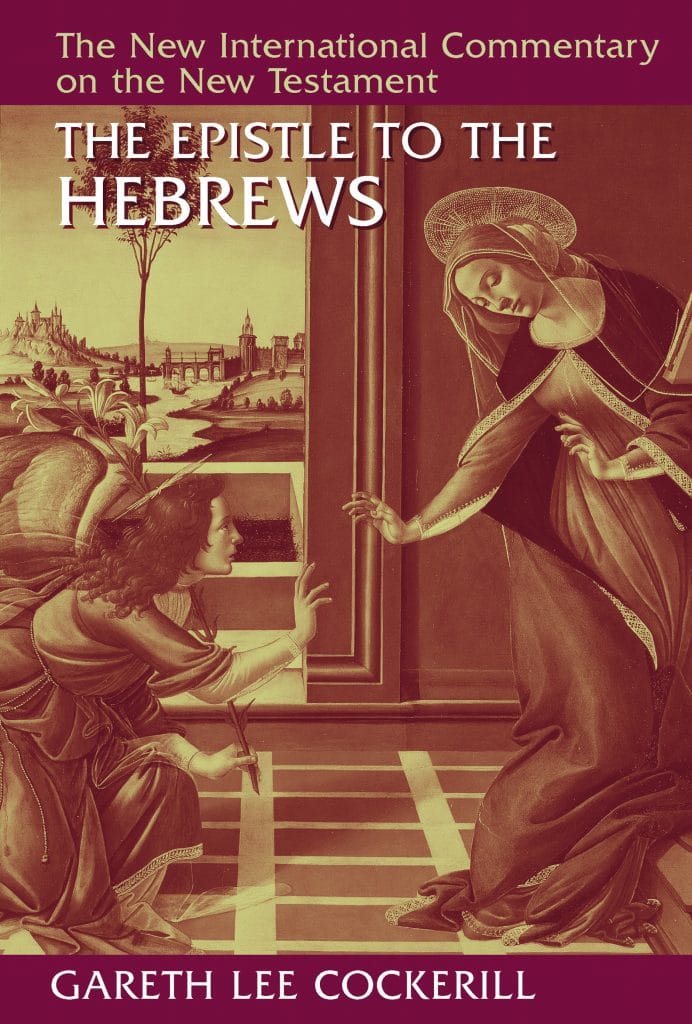Pastor, why should anyone listen to your words? What is the basis of your authority? The answer is both simple and demanding: people should listen to your words to the extent that your words express the word of God.
I have been too busy to blog for a month now, which doesn’t sit well with me at all! But (a) this too shall pass, God willing, after we are settled properly into our Atlanta house, and (b) I can’t help sharing a little nugget this morning.
First, a happy random note: I’m sitting here in our new kitchen as I blog. In the past five minutes, right here in our own backyard, I have seen both a great blue heron and a hawk! Much nicer than the baby snake (harmless variety) I found in our basement yesterday morning. The wrens nesting in our basement will need to be removed after this season, too, despite the cheer they bring. Truly we are moving to an urban jungle!
Back to God’s word and ours. I have just begun reading Gareth Lee Cockerill’s recent Hebrews commentary as part of my morning Bible time. I’m really liking his insights and assessments so far.
Here is the passage from his commentary introduction that provoked this little post today. Enjoy!
The pastor’s authority rests on the gospel message (2:1-4) that he holds in common with his hearers and on the persuasive quality of his exegesis.
I’ll interrupt briefly to say “Read that again!” When Cockerill says “pastor,” he is describing the author of Hebrews. But his words are equally valid for pastors today! Back to the quote:
Heb 1:1-4 enunciates the fundamental principles that underlie his interpretation of the OT. First, the God who “spoke” through the OT has now “spoken” in one who is Son. The inclusion of the OT under the rubric of “the prophets” (1:1) indicates that it anticipated God’s ultimate self-revelation. Thus this final word in the Son is both continuous with, and the fulfillment of, all that God said before the Son assumed humanity. Second, to the continuity of the divine Speaker one must add the continuity of the human recipients. Those to whom God spoke through the prophets were the “fathers” of those he addresses in his Son (1:1-2). God’s people have always consisted of those who hear, embrace, and persevere in the word of God. Both those who live before and after Christ have received the same call, the same promise, the same “gospel,” and are on pilgrimage to the same heavenly “city,” which all the faithful will obtain through Christ. There is one God and one people of God.
This firm confidence in the continuity of the divine speaker and of the human addressees underlies the pastor’s sense of the immediacy of God’s word. Thus it is no surprise that he prefers OT passages that are in the form of direct address and that he introduces them with verbs denoting speech rather than with “it is written.” What God has said in the past is of more than antiquarian interest. God “speaks” to his people in the present both by the words that he spoke to his people of old (Heb 3:7–4:11; 10:36-39) and by his conversations with his Son concerning the Son’s incarnation and exaltation (1:1-14; 2:11-13; 7:1-28); 10:5-10). God’s final revelation embraces more than what the Son has said. God’s final revelation is found in the fully adequate Savior he has become through his incarnation, obedience, self-offering, and session. The work of the Son enables God’s people to grasp his previous revelation more clearly and obey it more diligently. (Pp. 43-45)
Nearly every sentence there deserves meditation, helping us think more clearly about topics as varied as preaching, biblical interpretation, monotheism, and the identity of the people of God. God bless you as you listen to, obey, and proclaim the word of God today!



